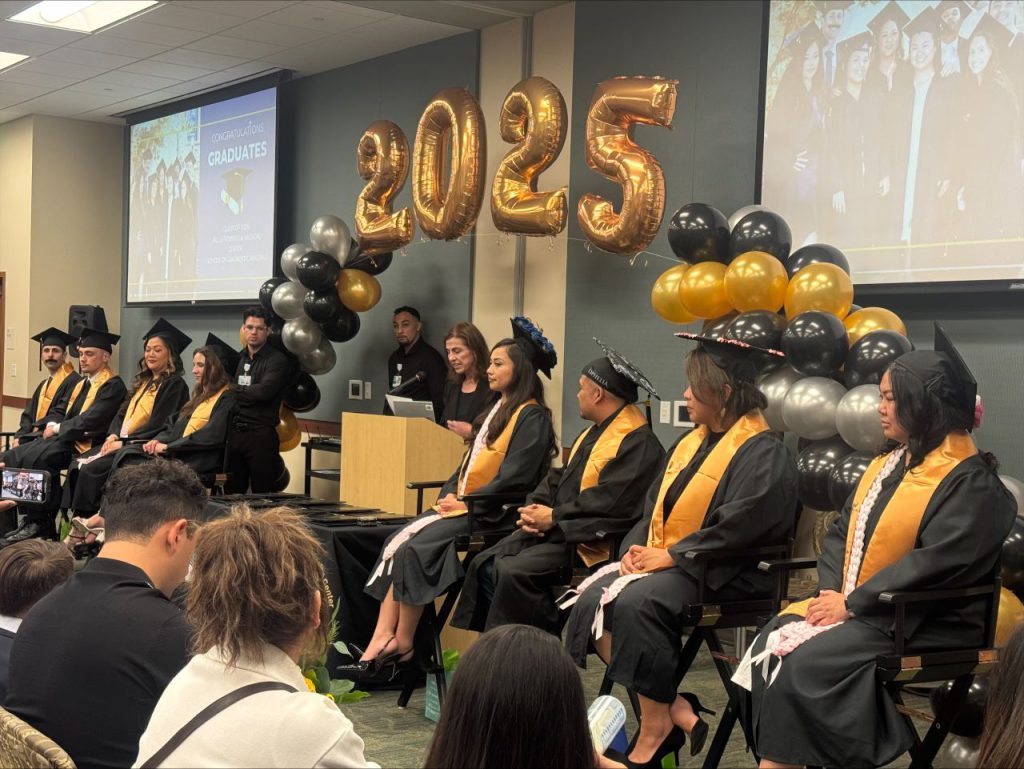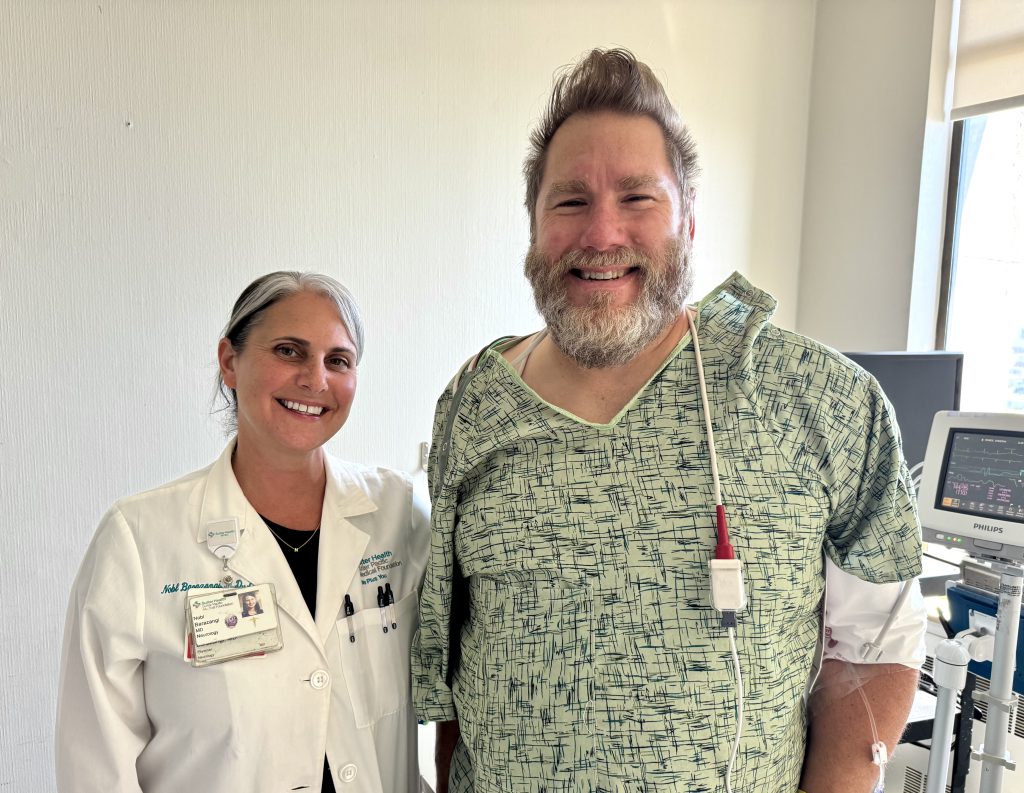The National Labor Relations Board will conduct an election via secret ballot on March 6, 2023, to ask all Residents and Fellows at California Pacific Medical Center if they want the Committee of Interns and Residents, SEIU Local 1957 (CIR/SEIU) to become their exclusive collective bargaining representative.
The choice of whether to become represented by a union is a very significant and important decision that will impact you, all future Residents and Fellows, our medical center and clinics, and our patients. It is a decision that must be made only after you are fully informed of all aspects of representation.
- Take advantage of our educational sessions.
- Connect with your Program Directors, Faculty, Human Resources or our educator with any questions.
- Please vote! And please vote NO to a union.
Frequently Asked Questions
#1. Could the union have helped with the payroll/Workday issues that occurred last year?
- Unions do not determine what payroll or other technology systems are used, nor is it the union’s role to fix issues in payroll systems.
- Implementation of the new payroll system was across the system and applied to every employee, those represented by the union and those represented by management.
- We all know that the implementation of workday resulted in a number of errors, and these errors impacted management represented employees as well as union-represented employees. While we worked to address any issues as quickly as possible, errors were not fixed any faster just because employees were represented by a union.
- At Sutter Santa Rosa, CIR/SEIU did not call the Employee Line on behalf of residents to fix the Workday issues, the residents had to do it themselves.
#2. Why join a union?
- By law, your relationship with your PD would change – PDs could not work with you individually, or your department as a group to make any changes to terms and conditions of employment.
- Everything related to wages, hours of work and working conditions would have to be negotiated with the union – not with you individually.
- If a union contract is agreed to, you and your PD would have to follow what is negotiated in the contract, even if your PD wanted to make an exception to meet your individual needs.
- If the union is voted in, you can be forced pay 1.6% of your wages in union dues or the union would require Sutter to terminate employment.
#3. Can the union get me more protection for leaves of absence (medical, FMLA, CFRA, etc.)?
- Sutter follows all federal, state, and local laws, including all leave laws.
- Unions may try, but generally have been unsuccessful in getting more than what our management represented employees get.
- For example, the SEIU-UHW contract with CPMC and the CIR/SEIU contract with Sutter Santa Rosa do not provide more generous leave than the minimum provided by the law and/or Sutter policy.
- For employees that are not represented by a union, Sutter’s policies lay out the protections for employees in this area.
- For employees represented by a union, their collective bargaining agreement may or may not include this information depending on if it was bargained in the contract.
#4. Can the union provide better pay and benefits?
- CPMC provides competitive wages and benefits:
Organization Wages and Stipends Year 1 Year 2 Year 3 Year 4 CPMC Pay
Stipend
Total
$71,427
$12,400
$83,827
$75,233
$12,400
$87,633
$79,851
$12,400
$92,251
$83,470
$12,400
$95,870
UCSF (CIR/SEIU) Pay minus dues
Stipend
Total
$65,869
$13,607
$79,476
$68,044
$13,607
$81,651
$70,727
$13,607
$84,334
$73,515
$13,607
$87,122
UCSF Benioff (CIR/SEIU) Pay minus dues
Stipend
Total
$62,159
$12,150
$74,309
$64,226
$12,250
$76,476
$68,524
$12,350
$80,874
Sutter Santa Rosa (CIR/SEIU) Pay minus dues
Stipend
Total
$63,448
$ 7,225
$70,673
$66,088
$ 7,225
$73,313
$72,624
$ 7,225
$79,849
Alameda Health System (CIR/SEIU) Pay minus dues
Stipend
Total
$66,214
$ 3,175
$69,389
$73,381
$ 3,175
$76,556
$76,474
$ 3,175
$79,649
$81,542
$ 3,175
$84,717
Santa Clara Valley Medical Center (CIR/SEIU)
Pay minus duesStipendTotal$68,410
$ 4,585
$72,995
$75,135
$ 5,385
$80,520
$82,026
$ 5,385
$87,411
$88,246
$ 5,385
$93,631
Stanford (CIR/SEIU) Pay minus dues
Stipend
Total
$72,836
$8,200
$81,036
$75,526
$8,200
$84,726
$82,321
$8,200
$90,521
$86,986
$8,200
$95,186
- Your salary, stipend and total compensation are higher than other local GME residency programs where resident/fellows are represented by SEIU-CIR, when you factor in the 1.6% of their salary they must pay in union dues.
- If a union is voted in, it will have to negotiate pay and benefits – there is no guarantee they will be more. UNION NEGOTIATIONS DO NOT START WHERE YOU ARE NOW AND ONLY GET BETTER. If you are being promised this it is simply not true.
- CIR-SEIU has represented residents at Santa Rosa for years. Has the union delivered on its promises for better wages there?
#5. How does collective bargaining work?
- Only wages, hours of work and working conditions are mandatory subjects of bargaining.
- Everything else is voluntary and typically not part of a contract.
- Things not part of a contract include humanity and compassion, patient care, equipment and supplies, community care and relations.
- There are no guarantees in bargaining.
- No obligation for either party to agree with the other or make a concession.
- Negotiations do not start where you are now and ONLY go up.
- You could end up with less, the same or more than you have now.
- Collective bargaining focuses on the entire group, rather than your specific residency. What might end up in a contract may not benefit you or your specific residency.
- Will they represent what is important to you or your residency program?
- Only the union appointed CIR rep will actually speak on behalf of the residents and fellows during bargaining sessions. Only a small select group of residents and fellows, typically those with stronger voices, will speak to the CIR rep and join the bargaining team.
- Will they represent what is important to you or your residency program?
- No time limit on how long bargaining might take.
- Within Sutter, first union contracts can take between 2 to 4 years to negotiate – many of you won’t be here then.
- In 2 years, the market might change dramatically and CPMC could not respond unilaterally like was done with the adjustments last year.
- No matter what the outcome of negotiations, in California, you can be forced to pay the union 1.6% of your wages, or the union could require that Sutter terminate your employment.
#6. Would the union have any influence on ACGME requirements?
- Absolutely not.
- ACGME is an independent body.
- A union cannot force ACGME to:
- Reduce the maximum hours of work allowed per week.
- Alter their requirements to graduate.
- Unions are free to make promises to employees, but they have no power to make them come true because any changes in wages, hours of work or working conditions must be negotiated with the hospital and agreed upon by both parties.
- The union does not have the power to reduce the ACGME weekly or daily work hour caps.
- We track works hours monthly to ensure compliance with ACGME guidelines related to hours of work.
#7. Why should I take the time to vote?
- If the union wins, they will represent all of you.
- California is not a right to work state, meaning the union can ask for a requirement that all members pay dues. Across Sutter Health, this is typically one of the first topics the union proposes during bargaining.
- Therefore, in the typical CIR/SEIU contract, THERE IS NO OPTING OUT.
- This means you could be forced to pay 1.6% of your wages in union dues, or the union could require that Sutter terminate employment.
- Voting only takes a few minutes and is confidential. No one will know how you voted.
- The election is decided by a simple majority of those who actually vote. Not voting is effectively voting for the union.
- Example: 117 residents, 40 turn up to vote, the union only needs 21 votes to win and represent all 117
- Don’t let others make the decision for you or tell you how to vote or not to vote; this is a personal decision.
#8. Would the union provide protection?
- No more protection than you already have, and you don’t pay union dues currently.
- Sutter GME has a grievance procedure – you can appeal any decision your PD makes.
- Examples: Dismissal, clinical competency, corrective actions, etc.
- And Sutter has a problem resolution procedure.
- The interpretation of CPMC employee rules, policies or procedures, written warnings, suspension, dismissal, leave of absence, etc.
- Payroll and benefits systems issues (i.e. Workday experience last year) – the union cannot control the systems the hospital uses nor can they fix issues that arise from them. The unions currently in Sutter were not able to stop the Workday transition or help fix issues for employees last year.
- Sutter GME has a grievance procedure – you can appeal any decision your PD makes.




